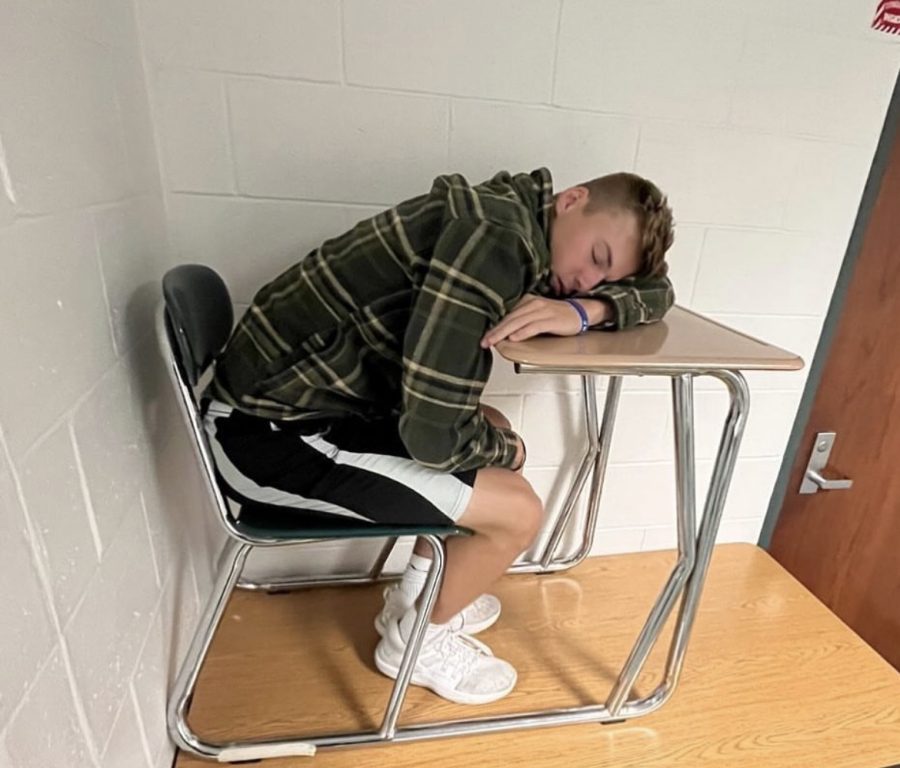Goodnight, Rangers
Senior Peyton Price takes a quick nap.
In this day and age, sleep is a luxury. People just can’t get enough rest because there’s not enough time in the day. Especially as the days shorten through cold winter air, students often find themselves without hours to spare.
Athletes already pack their schedules with practice times, so adding on their schoolwork can be frightening sometimes, but sleep also correlates with how an athlete performs. It can be tough to arrive for FHC’s early start time, but student-athletes also know that school must come first. For freshmen, this is their first year of getting used to their varsity and sub-varsity sports and heavy coursework.
“Sometimes it’s too early,” freshman Nolan Timmer stated. “I don’t get enough sleep anymore it seems. I probably get around six to eight hours of rest but I could definitely get more.”
Unlike the freshmen, seniors at FHC have grown familiar with the grind between schoolwork and a sport. While the recommended amount of rest for teenagers is 8-10 hours per night, senior Luke Piotrowski finds himself short on the golden number.
“I would say I get around five or six hours a night,” Luke explained. “It isn’t as much as I would’ve liked, but it is higher than in the past, that’s for sure.”
Many studies have shown that sleep can correlate to performance in any of the sports an athlete participates in. It is also common sense that more rest increases focus. A heavy coursework load can be detrimental to a student that is attempting to achieve 8-10 hours of rest.
Through freshman year, it can be challenging to handle the workload. Multiple required classes need to be completed, so many hours of homework each night can be common.
“I find myself having around an hour and a half worth of work at home each night,” Nolan stated. ”It’s not too bad but it can be a lot sometimes.”
Freshman year brings challenges and stress regarding grades, but once students hit senior year, it is much easier to let loose and prioritize other things in life. “Senioritis” is also a factor in student workload and stress.
“Senioritis” is the idea that through the senior year, it is more difficult to complete even the simplest assignments. However, sometimes, “senioritis” can be good for a student’s mental health.
“I think my schoolwork is definitely less than the other years,” Luke said. “I spend a lot less time worrying about the work this year than I have in years in the past.”
There are very few students that actually get their quality amount of rest, but one of those students who does is senior Abby Cumings. Abby aims to consistently go to bed around eleven o’clock each night, but just like any student, schoolwork can get in the way.
“I usually get roughly 7-8 hours of sleep every night,” Abby discussed. “I know this is a higher amount than most people, but I still do wish I could get a little more in order to be less tired.”
Sleep is important at all ages, but for teenagers, it promotes development of the brain and body. Nightly regimens are important, and all students should adopt one. Routine is important for everybody but especially for student-athletes. So, find a routine and get some rest. Goodnight, FHC.

Lucas Thompson is going into his senior year and is beginning his second and final year with FHC Sports Report. After finding a love for writing within The...



